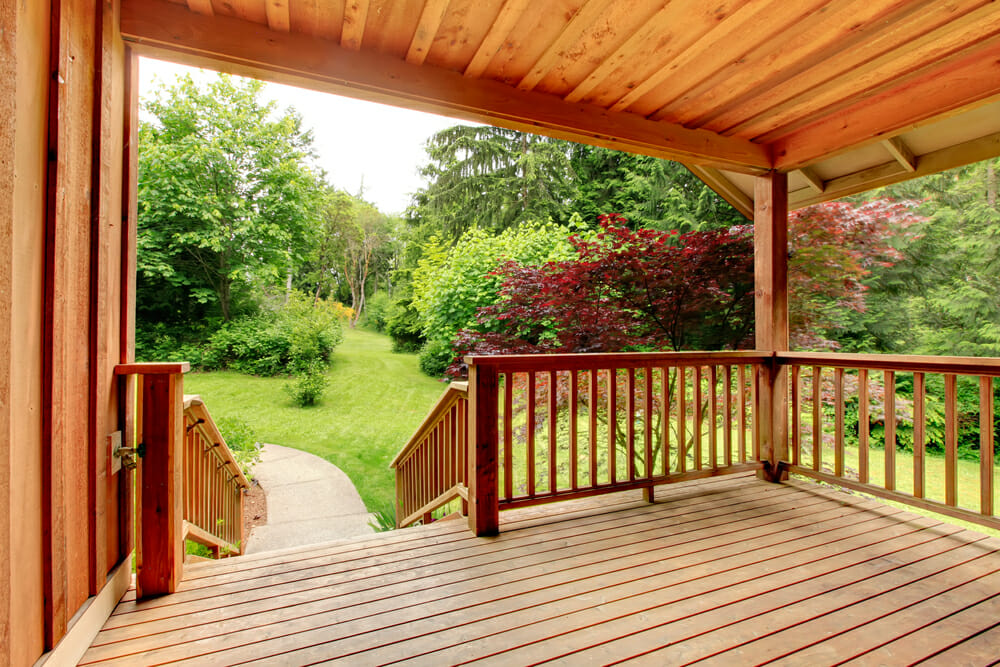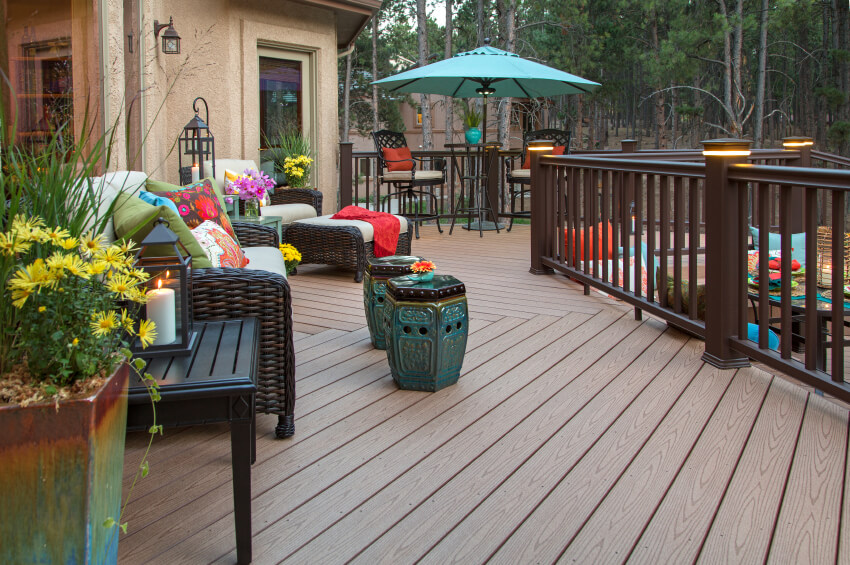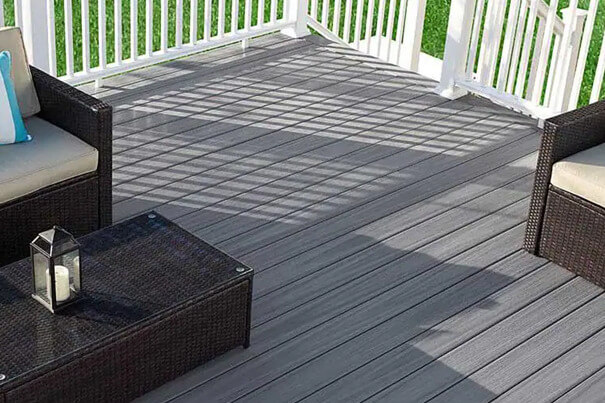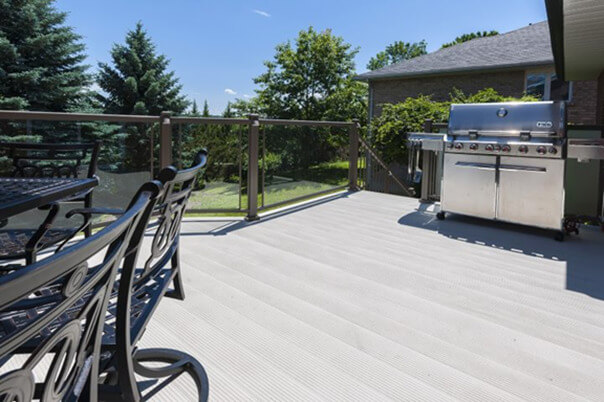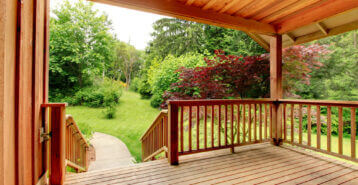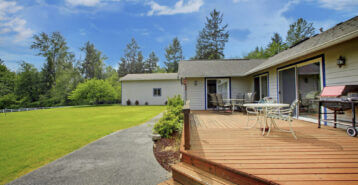Find the Best Decking Material for Your Outdoor Space
Choosing the right deck material is one of the most important decisions you’ll make when planning an outdoor upgrade. Material affects not just how your deck looks and feels, but also how much maintenance it will require, how long it will last, and how much you’ll spend upfront. Whether you’re building a new deck or replacing aging boards, this guide will help you compare popular materials like wood, composite, PVC, and aluminum to find the best fit for your budget, style, and lifestyle.
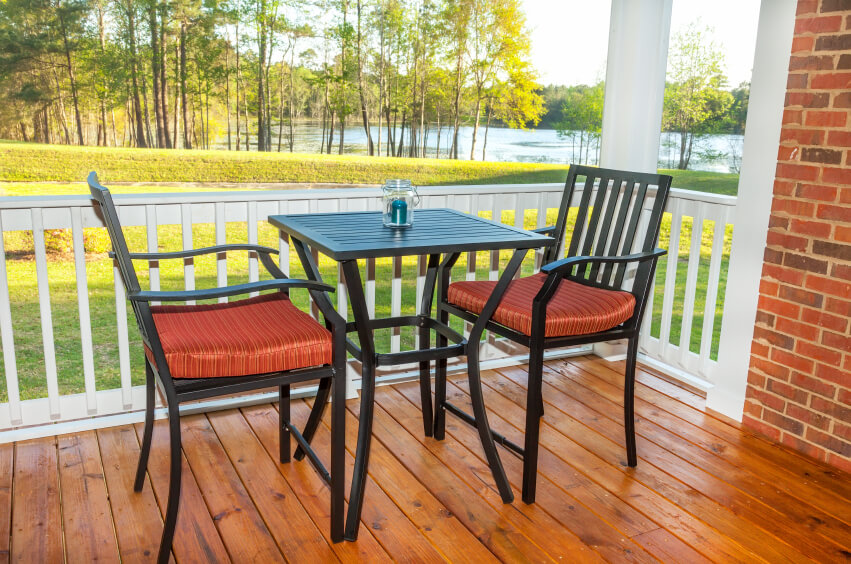
Factors to Consider When Choosing a Deck Material
Before choosing a material, think about how you’ll use the space and what kind of long-term investment you’re prepared for. Key factors include:
- Durability: Will the deck face harsh weather, direct sun, or heavy foot traffic?
- Maintenance: Are you willing to stain, seal, or clean your deck regularly?
- Budget: What is your upfront budget and how important are long-term savings?
- Aesthetic: Do you prefer the natural look of wood or the modern finish of composite?
- Resale Value: Some materials, like composite and hardwood, may appeal more to buyers.
Natural Wood Decking
Natural wood decking is a classic choice that offers timeless beauty and a warm, natural feel. Popular options include pressure-treated pine, cedar, and redwood.
Best for: Traditional looks and homeowners who don’t mind seasonal maintenance.
Composite Decking
Composite decking blends recycled wood fibers and plastic to create a low-maintenance, long-lasting material. It’s one of the most popular alternatives to traditional wood.
Best for: Low-maintenance homes, families with pets or kids, and long-term savings.
PVC (Plastic) Decking
PVC decking, also known as plastic decking, is 100% synthetic and designed to withstand moisture, mold, and harsh climates.
Best for: Homes in wet or humid climates or near pools.
Aluminum Decking
Aluminum decking is a durable, high-end option that resists weather, fire, and slipping.
Best for: Modern homes, high-traffic areas, and regions with extreme weather.
How Much Does Decking Cost by Material?
Deck materials vary significantly in cost, both upfront and over time. Here’s a general overview:
- Pressure-Treated Wood: $15 to $25 per square foot installed
- Cedar or Redwood: $25 to $35 per square foot
- Composite: $30 to $50 per square foot
- PVC: $40 to $60 per square foot
- Aluminum: $50 to $75 per square foot
Composite and PVC materials typically cost more upfront but can save money in the long run due to lower maintenance needs.
How to Choose the Right Deck Material
Choosing the best decking material for your home depends on your budget, climate, lifestyle, and long-term goals. Here are some important questions to help you decide:
- How long do you plan to stay in the home? If it’s a long-term investment, materials like composite or PVC may be worth the higher upfront cost.
- What’s your maintenance tolerance? Natural wood requires regular sealing or staining, while composite and PVC need only occasional cleaning.
- How harsh is your local climate? Wet, humid, or high-UV regions may demand water-resistant or fade-resistant materials.
- Do you have kids or pets? Look for scratch-resistant, splinter-free surfaces that stay cool underfoot.
- What’s your total project budget? Keep in mind that cheaper materials often require more frequent upkeep and earlier replacement.
- Are aesthetics or resale value more important? Choose a material that aligns with your home’s style and local real estate expectations. Natural wood is a budget-friendly option for DIYers or short-term homeowners, while composite and PVC are ideal for those seeking a low-maintenance, long-term investment. If you’re in a high-traffic or high-risk area, aluminum could offer unmatched durability and safety.
Deck Materials: Sustainability and Eco-Friendly Options
If sustainability is a priority in your deck project, material choice can make a big difference. Composite decking is often made from recycled plastics and reclaimed wood fibers, making it a popular choice for eco-conscious homeowners. PVC can also include recycled content and avoids the use of wood altogether, which reduces the demand for timber. While natural wood is biodegradable, the harvesting of certain species may not be environmentally friendly unless it comes from FSC-certified sources. Aluminum decking is recyclable and extremely long-lasting, meaning fewer materials are wasted over time. Ask your contractor about sustainably sourced deck materials or brands that offer green certifications to ensure your deck is both beautiful and responsible.
Choosing a Contractor for Your Deck Project
No matter which material you choose, professional installation can ensure your deck lasts as long as possible. A licensed contractor will help you select the best material for your space, navigate building codes, and deliver a safe, attractive finish. Get estimates from multiple contractors and ask about their experience with your chosen material type.
